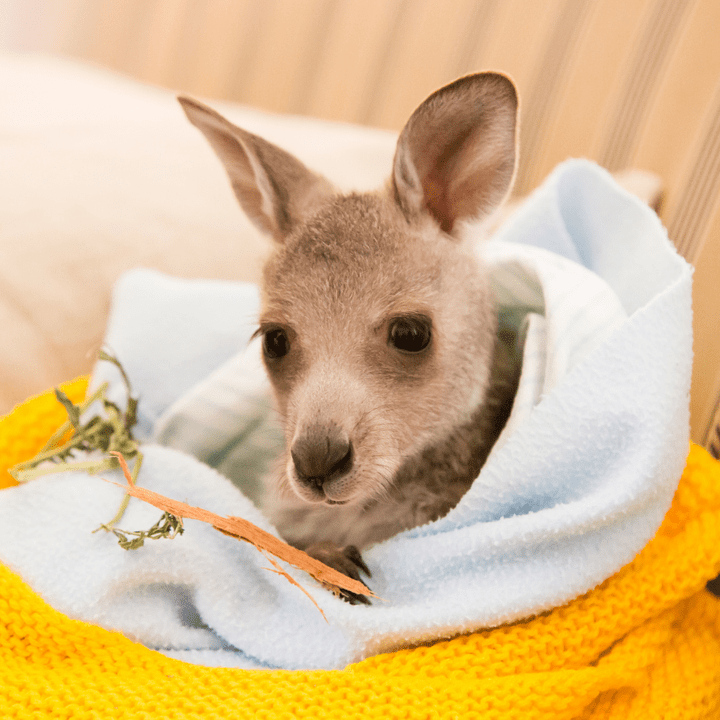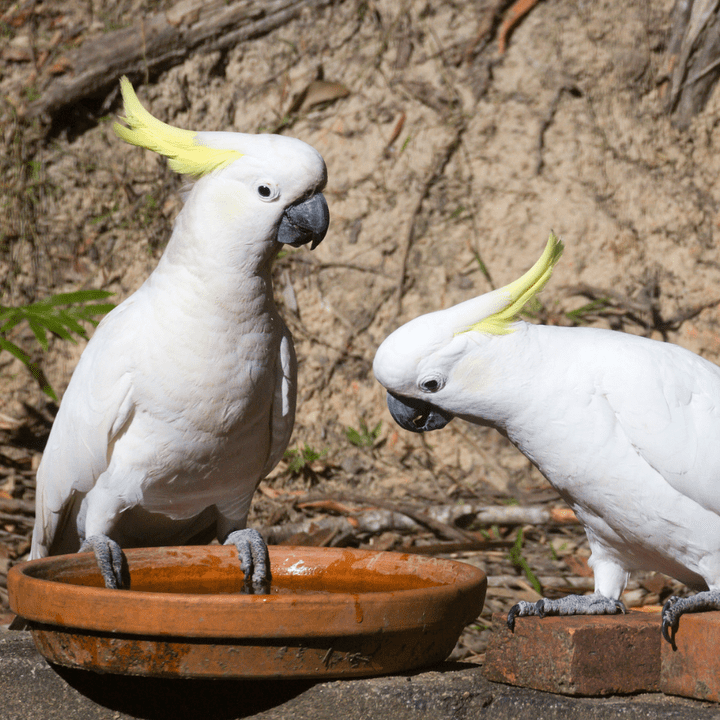
What to Do if You Find Injured Wildlife in Australia
A guide for how to help injured wildlife in Australia
It can be difficult to know what to do if you come across a wild animal who you think may be injured or in need of help. Below we have outlined some basic first steps for how to assess a situation - however, it is highly recommended that if you do find a sick or injured wild animal, contact your nearest veterinarian or wildlife carer organisation as soon as possible. There is generally no charge to bring the animal to a veterinarian.
Preparation and Prevention

Keep a cardboard box, gloves and a towel in your car in case you find an injured animal. The box should be ventilated with air holes and a lid.
Towels and gloves are also important for handling animals to prevent injury to both the animal and the handler.
Towels and gloves are also important for handling animals to prevent injury to both the animal and the handler.

In case of high temperatures or drought, leave out shallow bowls of water, including a few sturdy sticks or stones on one side to enable smaller animals to escape if they fall in.

If you have a backyard pool, check it regularly to ensure wildlife seeking water have not fallen in. Place obstacles in the pool, which animals can use to climb out, or keep the pool covered.
Read our handy guide for an animal-friendly swimming pool.
Read our handy guide for an animal-friendly swimming pool.
Finding an Injured Animal
- Call your nearest veterinarian or wildlife carer organisation as soon as possible. There is a list of state-by-state contacts below.
- Remove threats to the animal by keeping children, other people and pets away from the injured animal.
- If you have spoken with a rescue group for advice, and it is safe to do so, then, while wearing gloves, you can gently wrap the animal loosely in a towel. Then place them in a ventilated box with a lid and place the box in a dark, quiet, and cool place before going to your nearest veterinarian/ wildlife rescue or while waiting for the carer to arrive.
- Extra precautions include wearing a mask and long-sleeved shirt to prevent injuries, for instance in the case of possums.
- Wild animals become very stressed with handling and exposure to people and loud noises. Keep handling to a minimum, place the animal in the box, and put the box in a quiet area away from people and other animals.
- Do not handle bats and do not approach snakes, monitor lizards, large macropods or birds of prey. Immediately call a wildlife rescue organisation or your local veterinarian.
- Take note of where you found the animal, as they may need to be released back at the same location.
- Do not feed or treat the animal, unless instructed to by the veterinarian or wildlife rescue group.
If You Find Sick or Injured Wildlife, Please Call Your Nearest Veterinarian or One of the Following Organisations
- Nationwide
Wildlife Rescue Inc
Ph: 1300 596 457 - Australian Capital Territory
RSPCA ACT Ph: 02 6287 8100
ACT Wildlife Ph: 04 3230 0033
Wildcare Queanbeyan Ph: 02 6299 1966 - New South Wales
WIRES Ph: 1300 094 737
Sydney Wildlife Ph: 02 9413 4300
In NSW, you can also download the IFAW and NSW Wildlife Council's wildlife app, which will give you quick and direct access to the nearest animal rescue organisation.
Android: http://bit.ly/2rIgpki
iOS: https://apple.co/33GUlVf - Northern Territory
Wildcare Ph: 08 8988 6121 or Mob: 04 0888 5341 - Queensland
RSPCA QLD Ph: 1300 264 625
Wildcare Australia Ph:07 5527 2444 - South Australia
Fauna Rescue Ph: 1300 477 722
RSPCA SA Ph: 1300 477 722 - Tasmania
Bonorong Wildlife Hospital and Rescue Mob: 04 4726 4625 - Victoria
Wildlife Victoria Ph: 03 8400 7300
Help for Wildlife
24hr State-wide Wildlife Emergency Service Mob: 04 7755 5611
For more information, please visit WIRES.




